| Umělec magazine 2008/2 >> Yes or No | List of all editions. | ||||||||||||
|
|||||||||||||
Yes or NoUmělec magazine 2008/201.02.2008 Ivan Mečl | editorial | en cs de es |
|||||||||||||
|
The exhibit by the activist group, Guma Guar, at the Prague Municipal Gallery was damaged allegedly by a group of unknown iconoclasts, whose subsequent closing is accompanied by conspiracy theories. After the institution’s curator decided to prematurely shut the exhibit down without consulting the artists, the Czech art scene reacted in a rather atypical manner. Artists, whose exhibits had been scheduled for the space, refused further co-operation with the gallery; they will not implement any projects there. This incident was the last straw in a haystack of disgusting obstructions that has led artists to finally sober-up after their institutional tea party.
Post-revolution, cultural institutions never earned their trust. For the most part, they are successor organizations to centuries-old survivors of bureaucratic fortresses distinguishable from each other only by different names and facades. But the new facades still hide the same demagogic thinking of their predecessors. Only a part of the terminology is different. They are comfortable with feudal management and have no interest in implementing any democratic operational mechanisms. These organizations are paralyzed by impenetrable bureaucracy. Their bookkeeping is non-transparent. Their financial transactions and manipulation of allotted assets are kept secret. This is incredibly convenient for the structures within their walls. Provided they maintain such a state, then they do not have to open up to the outside world and needn’t consider anyone their partner. Why do we tolerate the arrogance and decay of platforms meant to represent contemporary art? Why do we suffer from laziness of thought among those persons meant to apply complicated principles and procedures? Do we really want to be associated with such disgraceful acts? Large State and municipal institutions in Eastern Europe do not contribute to young artists’ exhibit projects. They dole out funds only to a few favorites. They prefer to spend their budgets on themselves. But despite this, they take advantage of artists and external curators in the name of breathing new life into their depleted souls. Obscure plastic surgery enables them to suck the public coffers clean, and now they appropriate international grant programs. Institutions pay experts to help them access money from public as well as private funds. Their faces, drawn in shock by requests for financial support for the planned project, do not however change. After all there “is no budget” for the exhibits that they themselves ordered in an effort to improve their ghastly images. But despite this, still today they bite their lips and pay for the exhibits at their own expense, or thanks to the support of friends or sponsors they themselves found. Key figures in these cultural institutions have held their positions for almost twenty years now. Provided any one of them was forced to resign, then it was likely the result of their mutual scheming. I doubt we remember anyone else running these institutions. Even the rotations of the same people in the same posts brings to mind the act of running in quicksand. Outside their launches and media presentations they do not communicate with the public. They speak to us through sound-bites sprinkled throughout the media and via press releases that read as if written for high school students. All is topped off by their cultural directors with their arrogant behavior, similar to that of coke dealers. They enjoy expensive limousines, luxury and opulence. They function in a perverse symbiosis with governing political parties or the financial mafia. When French curators, Jerome Sans and Nicolas Bourriaud, put together the project for the Palais de Tokyo cultural space in Paris at the end of the 1990s, they included a provision for a four-year term for project directors into the project by-laws. The Palais de Tokyo became, immediately after its opening, one of the most important spots on earth for contemporary art. Despite this both men left after four years, only to be replaced by their critics and opponents. In our context that sounds like a fairy-tale. We would expect rather life-long directorships for services rendered. Given the financial possibilities of the institutions themselves or in connection with publishers of gift artistic codices, the shelves of bookstores are polluted with expensive publications describing the history of art as a series of their activities; as well as those favored by them, or as memoirs of their favorite geniuses. It will be very hard for someone to correct what has taken place over the past decade. The whole period of artistic development after 1989 is warped by their institutional activities and their published opinions. And were we to allow them to do so, they would try and change the views on cultural history prior to that date to their advantage. Outside this, people exhibit in desperate conditions where there are in fact no budgets and it makes no sense to calculate costs. Less-known activists cannot of course afford to hire fundraisers. Independent-minded texts—of actual fundamental importance—have returned to the pages of dispersed underground newspapers and fringe periodicals. And this is good. In this way the product is more authentic than that which officials circulate under the ceilings of high-vaulted salons. They have worries enough with the cash they’ve accumulated and the possibilities these moneys afford, so there is no time to take any interest in the quality of the works or the sense of the art shown. Fighting institutions is a waste of time; we should only express our sincere regret. It is a painful path to become independent from the awareness of importance and the drug that is decision-making. We take pity on all those who wasted their lives in office chairs and maintaining the constant rhythm of keeping appointments. Sometimes we can have mercy on the victims of mutually-inflicted plots. But let’s not become part of their game. We have too little time for that. Profits from these well-planned games are as certain as bets in border-town casinos. The game means compromising oneself, denying one’s own opinions and principles. It’s not possible to tread continuously the line between Yes and No. Let’s not allow ourselves to be drawn in by the enticements of corrupt and hypocritical institutions behind whose backs we criticize. Let us choose Yes OR No, for otherwise we are party to their hypocrisy and corruption. Perhaps the collective refusal and isolation of the old guard will be the first step to the creation of new, truly independent, democratic and open ones. Until refusals themselves become art, at least they are interesting.
01.02.2008
Recommended articles
|
|||||||||||||
|
04.02.2020 10:17
Letošní 50. ročník Art Basel přilákal celkem 93 000 návštěvníků a sběratelů z 80 zemí světa. 290 prémiových galerií představilo umělecká díla od počátku 20. století až po současnost. Hlavní sektor přehlídky, tradičně v prvním patře výstavního prostoru, představil 232 předních galerií z celého světa nabízející umění nejvyšší kvality. Veletrh ukázal vzestupný trend prodeje prostřednictvím galerií jak soukromým sbírkám, tak i institucím. Kromě hlavního veletrhu stály za návštěvu i ty přidružené: Volta, Liste a Photo Basel, k tomu doprovodné programy a výstavy v místních institucích, které kvalitou daleko přesahují hranice města tj. Kunsthalle Basel, Kunstmuseum, Tinguely muzeum nebo Fondation Beyeler.
|







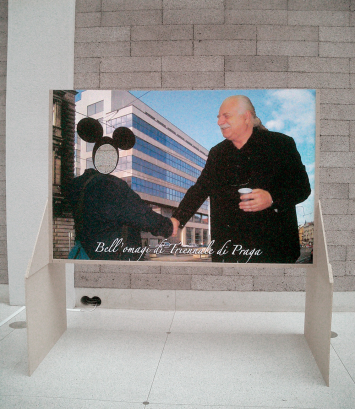
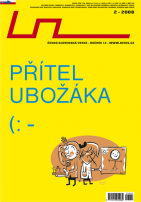

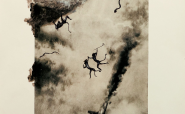


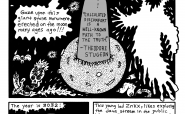







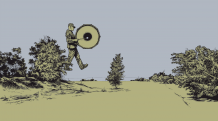




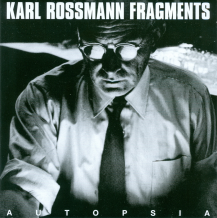
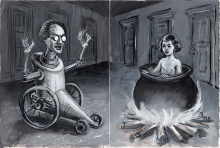
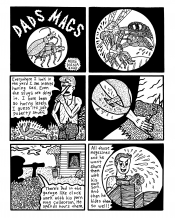
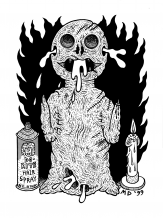


 We Are Rising National Gallery For You! Go to Kyjov by Krásná Lípa no.37.
We Are Rising National Gallery For You! Go to Kyjov by Krásná Lípa no.37.
Comments
There are currently no comments.Add new comment